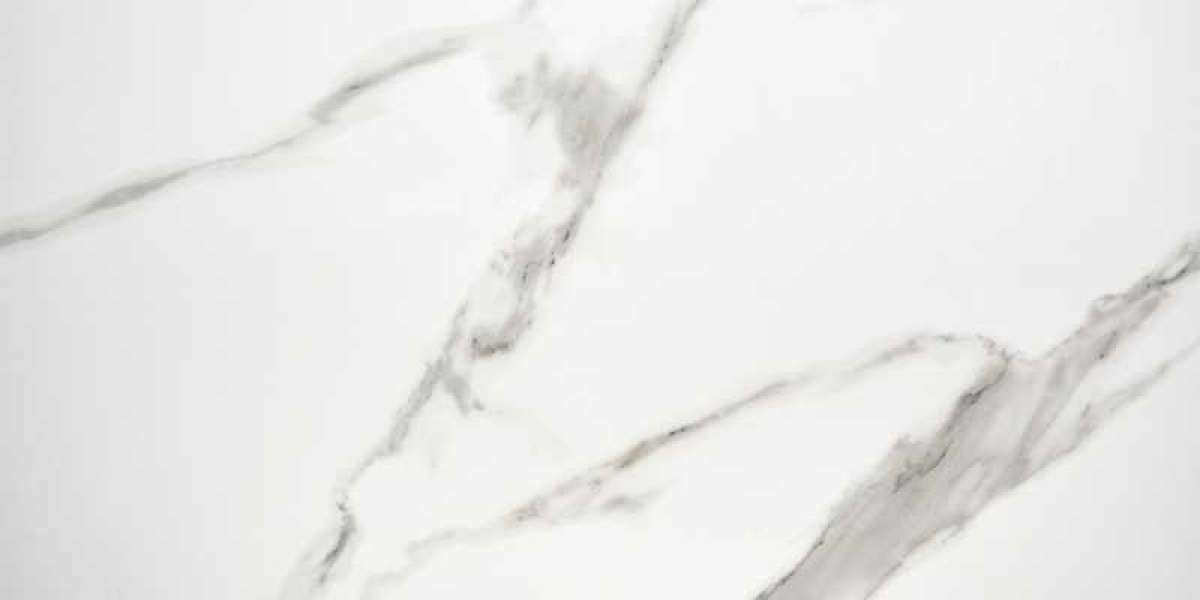When designing or renovating a home, flooring is one of the most crucial decisions to make. Among the many options available, porcelain tiles have emerged as a top choice for many homeowners and interior designers. Their durability, versatility, and aesthetic appeal make them a popular option for both wall tiles and floor tiles. However, like any material, porcelain tiles come with their own set of advantages and disadvantages. This comprehensive guide explores the pros and cons of porcelain tiles, helping you decide if they are the right choice for your project.
What Are Porcelain Tiles?
Porcelain tiles are a type of ceramic tiles made from finer, denser clay that is fired at higher temperatures. This process makes them more durable, less porous, and highly resistant to wear and tear. Porcelain is commonly used for floor tiles and wall tiles in both residential and commercial spaces due to its exceptional strength and aesthetic versatility.
The Pros of Porcelain Floor Tiles
1. Durability and Longevity
Porcelain tiles are incredibly durable, making them ideal for high-traffic areas such as kitchens, hallways, and commercial spaces. They are resistant to cracking, scratching, and chipping, ensuring they maintain their pristine appearance for years. Their long lifespan makes them a cost-effective investment over time compared to other flooring materials.
2. Water Resistance
One of the standout features of porcelain tiles is their low porosity. This characteristic makes them highly resistant to water, which is why they are often used in bathrooms, kitchens, and outdoor areas. Unlike other materials, porcelain is less likely to absorb moisture, preventing mold and mildew growth.
3. Versatile Design Options
Porcelain tiles come in a wide range of colors, textures, and finishes. Whether you want a natural stone look, a sleek modern design, or a wood-like finish, porcelain tiles can mimic almost any material. This versatility allows them to be used as both wall tiles and floor tiles, complementing various interior and exterior designs.
4. Stain Resistance
Thanks to their dense composition and glazed surfaces, porcelain tiles are highly resistant to stains. Spills from coffee, wine, or other liquids can be wiped off easily without leaving marks, making them an excellent choice for households with children or pets.
5. Low Maintenance
Porcelain tiles require minimal maintenance compared to other flooring options. Regular sweeping and mopping are sufficient to keep them looking clean and new. Their resistance to moisture, stains, and wear means you don’t need to invest in special cleaning products or frequent resealing.
6. Fire Resistance
Porcelain tiles are non-combustible, meaning they will not catch fire or emit toxic fumes when exposed to high temperatures. This property makes them a safe option for kitchens and other areas where fire hazards may exist.
7. Hypoallergenic Properties
For households with allergy sufferers, porcelain tiles are a great choice. They don’t trap dust, pollen, or other allergens, making it easier to maintain a clean and healthy living environment.
8. Eco-Friendly Option
Porcelain tiles are made from natural materials like clay and sand. Many manufacturers now use eco-friendly practices, making porcelain tiles a sustainable flooring option. Additionally, their durability reduces the need for frequent replacements, minimizing environmental waste.
The Cons of Porcelain Floor Tiles
1. High Cost
Porcelain tiles are generally more expensive than standard ceramic tiles and other flooring options like vinyl or laminate. The cost includes not only the tiles themselves but also the specialized labor required for installation. However, their longevity often offsets the initial expense.
2. Complex Installation Process
Installing porcelain tiles requires expertise due to their hardness and density. Cutting these tiles can be challenging, and improper installation may lead to issues like uneven surfaces or cracked tiles. This means you’ll likely need to hire professionals, increasing overall costs.
3. Cold and Hard Surface
While the hardness of porcelain tiles is an advantage in terms of durability, it can also be a drawback. These tiles can feel cold and uncomfortable underfoot, especially in colder climates. Additionally, their hard surface may not be ideal for homes with young children or elderly individuals who are at risk of falls.
4. Heavy Weight
Porcelain tiles are heavier than many other flooring options, which can pose challenges during transportation and installation. Their weight also makes them unsuitable for certain structural applications, such as on lightweight floors or walls that cannot bear heavy loads.
5. Limited Comfort
Porcelain tiles lack the warmth and comfort of materials like carpet or wood. While their aesthetic appeal is undeniable, they may not provide the cozy feeling some homeowners desire, particularly in living rooms or bedrooms.
6. Slipperiness
Depending on the finish, some porcelain tiles can be quite slippery, especially when wet. This can be a safety concern in areas like bathrooms or poolside spaces. However, opting for textured or matte-finish tiles can mitigate this issue.
7. Grout Maintenance
While porcelain tiles themselves are low-maintenance, the grout between the tiles can become discolored or stained over time. Regular cleaning and resealing of grout lines are necessary to maintain a polished look.
Porcelain vs. Ceramic Tiles: Key Differences
It’s essential to distinguish between porcelain tiles and ceramic tiles to make an informed decision. While both are made from clay and fired at high temperatures, the differences in their composition and manufacturing processes result in distinct characteristics.
| Feature | Porcelain Tiles | Ceramic Tiles |
|---|---|---|
| Durability | More durable and dense | Less durable, prone to chipping |
| Water Resistance | Highly water-resistant | Moderate water resistance |
| Cost | Higher | Lower |
| Design Options | Extensive, including natural stone and wood looks | Moderate variety |
| Installation | Complex | Easier |
| Applications | Ideal for high-traffic and wet areas | Suitable for low-traffic areas |
Tips for Choosing the Right Porcelain Floor Tiles
- Consider Your Space: Evaluate where the tiles will be installed. For wet areas, opt for anti-slip finishes. For high-traffic zones, choose tiles with high durability ratings.
- Match Your Aesthetic: Select tiles that complement your overall interior design. With options ranging from matte to glossy and patterned to plain, you’ll find something to suit every style.
- Plan Your Budget: While porcelain tiles are an investment, be mindful of your budget. Factor in installation costs and consider the long-term savings from their durability.
- Professional Installation: Given the complexities of installation, hire experienced professionals to ensure a flawless finish.
Final Thoughts
Porcelain floor tiles offer an excellent combination of durability, aesthetic appeal, and low maintenance. Whether you’re designing a modern kitchen, a luxurious bathroom, or an inviting outdoor patio, these tiles are a versatile choice for various applications. However, their higher cost, cold surface, and challenging installation process may be drawbacks for some homeowners.
Understanding the pros and cons of porcelain tiles, as well as how they compare to ceramic tiles, will help you make an informed decision. By carefully considering your needs, budget, and design preferences, you can choose the perfect wall tiles or floor tiles to transform your space into a functional and stylish masterpiece.


